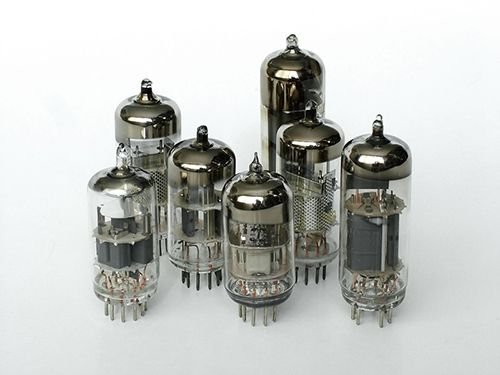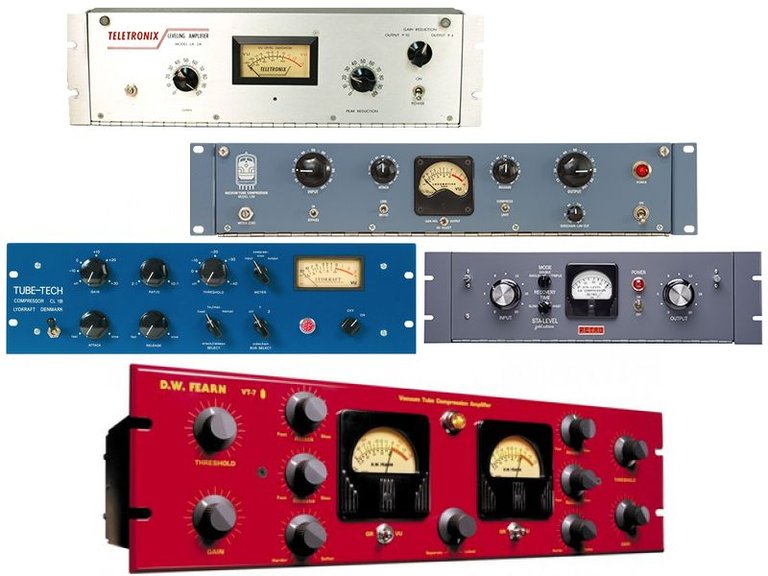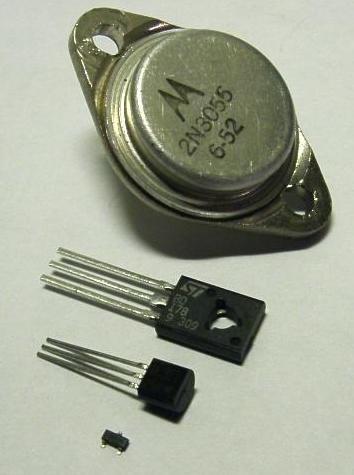Hey guys
Today i wanna cover some of the most paradoxical aspects of compression.
From one side the compression theory fits on a piece of paper, on the other hand there are many people who don't really understand how to practically use this theory.
Little bit of History

First compressors been assembled using Vacuum Tubes
Tube compressor has very warm sound characteristic, long attack time and smooth high frequencies. In few words - BIG AND FAT Sound is Tube Compression.
Time has passed and transistor have been invented. All old schemes have been redesigned with the new technology
And we got Transistor Compressors.
Transistor compressor have small attack times (around 1ms) and very specific evil sound.Time has passed and we got into an era of digital technology. Mastering/Sound Engineers and Musicians started to use digital processing units and plugins that have been working by a certain Algorithms. These Algorithms able to give super fast attack speed (around 1 micro second) and no coloring.
Compression Theory
A compressor detects input signal continuously, and if the signal level exceed specified threshold value - the compressor lowers the signal by a certain amount.
In other words - Compression is the process of lessening the dynamic range between the loudest and quietest parts of an audio signal. This is done by boosting the quieter signals and attenuating the louder signals. The end result is that our signal becomes more controlled and not going out of the mix.On the other hand with certain parameters for example the Attack Speed we can highlight the peaks. And this is the paradox of the compressors. This device is dramatically affects the Dynamics of our signal.
Lets take a look on main Compressor control parameters.
- Threshold - how loud the signal has to be before compression is applied.
- Ratio - how much compression is applied. For example, if the compression ratio is set for 6:1, the input signal will have to cross the threshold by 6 dB for the output level to increase by 1dB.
- Attack - how quickly the compressor starts to work.
- Release - how soon after the signal dips below the threshold the compressor stops.
- Knee - sets how the compressor reacts to signals once the threshold is passed. Hard Knee settings mean it clamps the signal straight away, and Soft Knee means the compression kicks in more gently as the signal goes further past the threshold.
Attack parameter is one of the main parameters you have to tweak in order to achieve the sound that you desire. If the Attack is low then the compressor reacts very fast and the peaks are being compressed.
But if the Attack is high then the compressor reacts slowly and the result is: the Peaks not being touched by the work of the compressor at all.
Release Parameter defines after how long in MS the compressor stop working.
Please Note : Release parameter directly related to your sound's wavelength and/or frequency. If the frequency is lower then the Release parameter should be higher to avoid compression distortion.
You may notice that some devices have a parameter called "Auto Release" this function is based on a unique algorithms in different devices.
In Automatic mode the compressor decides when to release. Be ready that the optimal value will be above 100ms. If you're looking for fat and loud sound then don't use Auto Release function. Fat and Loud sound usually achieved with release below 100ms.
Sometimes beginners encounter something they don't really understand - Mono, Stereo, and Dual Mono Compression.
What is dual mono compression? The answer is simple. Usually we deal with Mono or Stereo compressors. Mono Compressor is one channel device. Stereo compressor is two channel respectively.
The problem is that in wide range of devices the signal detector receive signals from both channels and affect it simolteniously. The result is what's called Collapse of the Stereo-base. Many people encounter this phenomenon when after they apply a compression to a sound it becomes narrow.
The problem can be solved with Dual mono Compression. Each channel got it's own signal detector and each channel is compressed separately.
There are devices that may allow you to apply what's called Mid/Side compression.
Basically it's two compressors built into one. One works with Mid or Mono part of the signal. And the other works with the Side or Stereo part of the signal. M/S compression widely and mostly used in Mastering.
When it comes to compressors one of the analogies that i can think of is how a gardener cuts a bush, he cuts it to be straight without branches sticking out. The same thing should be our mix, precise and controlled.







Wow!
I'll show you my pedal collection if you show me yours...
And I have a few classic analog synths; did you put yours up yet?
cool, i have Microkorg XL which has very rich analog sound and Access Virus TI :)
well written !!
thanks
thank you very much
good work!
great post . thanks
thank you very much :) working on part #2 :)
This is a very good post thank you.
thank you very much
Great post, @terranoise! It explains so much!This is definitely going to help. Very well written too. Will be waiting for part two of this one.
thank you very much, Part two is up! :)
Just what I was looking for, just when I'm starting to learn how to use music edition software.
thank you very much, have fun learning to create, it's a very pleasant journey :))
Useful post about compression. If you're using it in your digital DAWs, for vocals etc I find a good level to record to is around -18db. Especially with Waves plugins, this is a great level to put run a compressor at.
@kaertrolled nice than you for the tip :)
Great explanation of compression. We are so lucky these days with all of the virtual compressors available to us. Some simulate the oldies like the 1176 or the LA2A compressor/limiter so well, you can't even barely tell. Each one has it's role in making drums sound great, mixes beefier, and synths fatter. Thanks for this post.